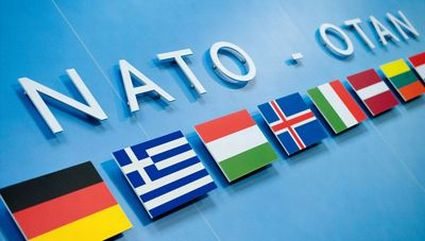NATO and Russia had a “very frank” exchange of views on the Ukraine crisis Monday but found no common ground in the first such meeting since Moscow annexed Crimea, officials said.
“I can say it was a very frank exchange of views,” alliance spokeswoman Oana Lungescu said after a meeting of the NATO-Russia Council which groups the 28 member state ambassadors with their Russian counterpart.
The meeting clearly showed “that there are fundamentally different views on this crisis, on its origins, on what is happening now and on how it should be resolved,” Lungescu said.
There had been some hope the meeting, the first since Crimea’s annexation in March, could serve to ease tensions after Russia began withdrawing troops massed on the Ukraine border and progress was made in talks with Ukraine on resolving their dispute over gas deliveries.
NATO member states “repeated their very strong and clear position on the illegal and illegitimate annexation” of Crimea, Lungescu said.
“They made clear that they would not recognize it, they commended the elections in Ukraine as a clear vote for the unity of Ukraine and called on Russia to engage constructively with the newly elected president,” she said.
They also called on Russia “to respect its international commitments, to stop the flow of arms and weapons across the border, to stop supporting armed separatists in Ukraine,” she added.
Russian troops meanwhile should be withdrawn in a “full and verifiable manner,” Lungescu said.
Lungescu gave no details of what Russian Ambassador to NATO Alexander Grushko had said in response.
The Ukraine crisis will be a major talking point at a meeting of NATO defence ministers in Brussels on Tuesday and Wednesday, just before a G7 summit takes up the issue at the highest political level later in the week, also in Brussels.
The defence ministers in particular will discuss the long-term security implications of Russian actions in Ukraine and what action NATO member states must take in response.
“These are fundamental decisions,” a senior NATO official said, and would go up to NATO leaders at their September summit in Britain.
Monday’s meeting was held at the request of the Russian ambassador, a move seen initially as a possible sign of Moscow’s readiness to compromise.
NATO suspended all practical cooperation with Russia after Crimea’s annexation but excluded this particular meeting on the grounds it was important to keep this diplomatic channel open.










